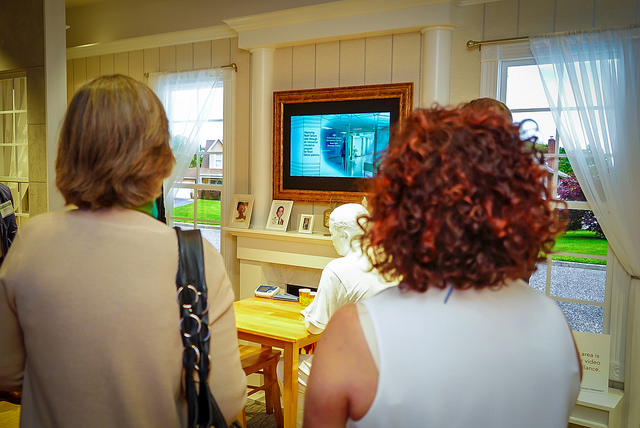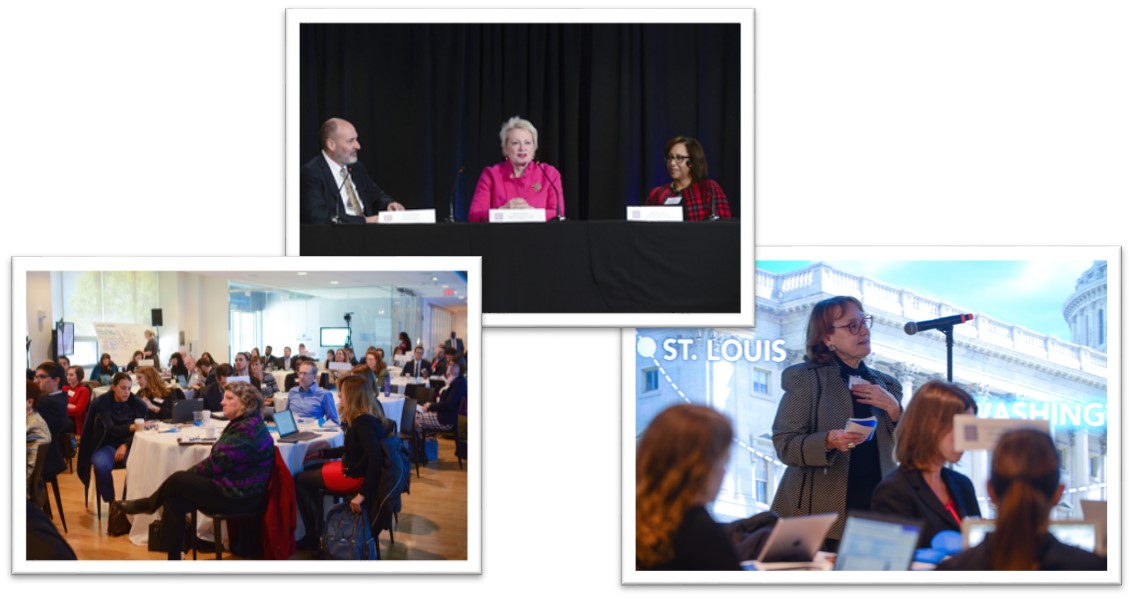Dr. Felicia E. Mebane (introduced in this post earlier this week) understands the power of a good podcast. That’s why she created Health Services Unplugged for her fellowship with the Kaiser Permanente-funded AcademyHealth Innovators-in-Residence Program. This blog and podcast series features interviews with researchers and professionals who investigate ways to improve care for vulnerable and safety net populations.
“Podcasts are really popular right now, so I wanted to explore how that format could be used to disseminate health services research,” Mebane said.
In a recent Q&A, Dr. Mebane discussed her past and her goals for this project.
Tell us a bit about the Innovators-in-Residence program, and why you were interested in being involved.
Through its Innovators-in-Residence Program, AcademyHealth invites professionals who have interesting, creative, or innovative skills, experience, or ideas to spend one to three months completing a project and working with AcademyHealth’s staff. Financial support allows innovators to take time from their regular responsibilities, whether they already focus on health services or come from other industries.
I wanted to participate in this program because of my background and focus. As a public health communications expert with health policy training, I am always looking for opportunities to help researchers disseminate their work. Also, I think the field of health services research can be more creative so that we can better engage in public debates and influence policy.
As you mentioned, each Innovator is tasked with working on an independent project. Would you mind providing an overview of your project, Health Services Unplugged?
The current series features a recent research publication or project and connects it to something in the news or popular culture. The approach is for me and/or another guest (for example, a student or community member) to chat with the researcher about their work and a little bit about themselves. The goal is to inform audiences and to inspire them to learn more.
We also wanted to see how people would respond to this format, including how much traffic the site would get and how willing folks would be to participate. I hope this project will continue and encourage others to leverage different media tools and forums to reach their stakeholders.
Who did you interview, what projects are they focusing on, and how did you select the interviewees?
My approach was to present a broad mix of research and researchers. I started my list of potential guests by looking at recent issues of Health Affairs and Health Services Research, talking with AcademyHealth staff, and connecting with my networks. For example, the series includes professors at the Johns Hopkins Bloomberg School of Public Health and the University of Wisconsin’s School of Public Health and a director of research from the Colorado Health Institute. Guests included a grade school teacher, a graduate student and a DC Councilman. Topics included health disparities, access to care and Medicare payments to physicians.
I also wanted each episode to include something you won’t hear in a typical interview. Additional themes include career advice, interesting translation and dissemination tools, and fun facts about the researchers.
Did you intend for your podcast series to reach patients in the populations, or were you focusing on impacting the perspective of providers, policymakers, and other health professionals who serve these patients?
I initially targeted students and early career professionals engaged in health services or policy. I also see the audience including journalists, staff who support policymakers and anyone else interested in these issues. Though patients were not our initial focus, I am excited about the possibility of finding partners who want to communicate directly with them.
What advice would you offer someone interested in being involved with Health Services Unplugged (HSU) or helping translate and disseminate health services research?
If you are interested in supporting HSU or working with us, please contact me via our webpage. In addition to volunteer opportunities, we hope to eventually offer internships and other opportunities. Stay tuned to our website for announcements.
For folks who are thinking about a career in health services research, I encourage you to take a seminar or workshop or even class on communications. ALL researchers have to write and talk about their work. Being able to do both well will serve you in your career and help the field. If you are already a great communicator, think about health services as a career. Some health services or policy programs also give you a chance to focus on public relations, broadcasting or other aspects of communications.
You can listen to Dr. Mebane’s full podcasts via iTunes, Android, or RSS.


